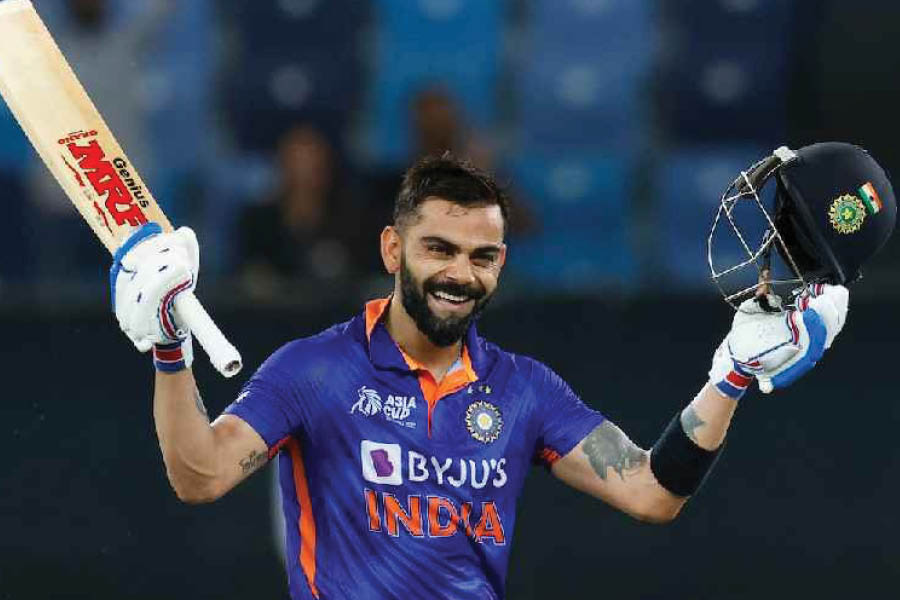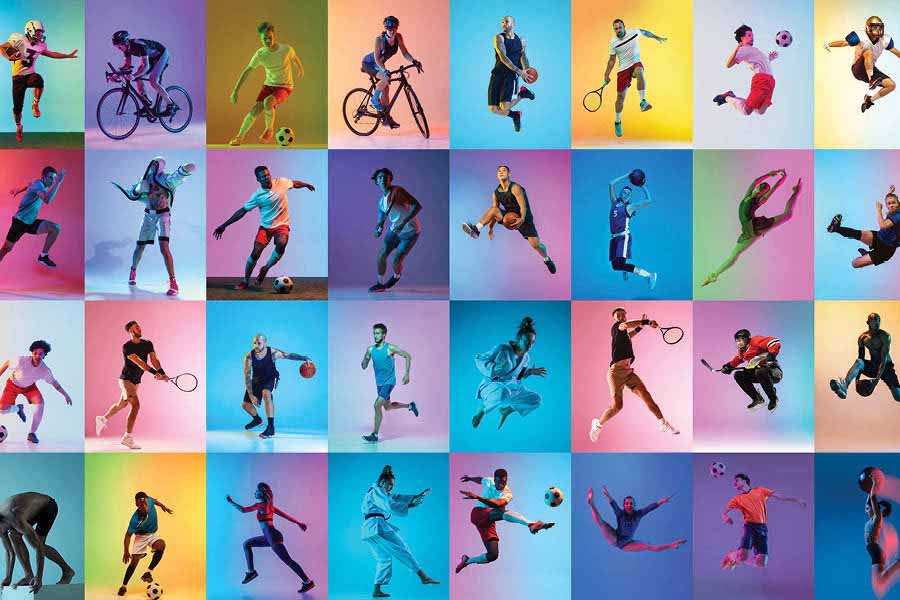Charles Dickens’s Great Expectations and the 1963 film, The Great Escape, appear to have little in common. The novel follows the story of Pip, a blacksmith’s apprentice in a village who comes into a large fortune mysteriously and moves to London to enter high society. The film starts with the Nazis building a special prison for their troublesome prisoners and follows a group of prisoners as they plan and eventually succeed in an escape.
Pip could just as easily be replaced by a 17-year-old athlete who is discovered and catapulted into riches as he signs for a professional team (we have heard and seen those stories before). Our mischief makers from The Great Escape could just as easily be seen as a rebellious team with many identities finding its feet and triumphing against odds.
Why is it so easy for us to find meaning in sports? Why is it that billions tuned in to watch the FIFA World Cup final? Billions! When it is near impossible to get a million people to do the same thing at once (every political party tries during elections).
How can sports so easily unite not millions, but billions? By being the receptacle of our great expectations. And being our great escape.
Finding ourselves on the playing field

Some athletes such as Virat Kohli are aspirational, people want to be them. Others are friendly, someone you can see as a friend TT Archives
So let us ask the scientific question: why does sports matter to people?
Sport psychology has studied this through the Affective Disposition Theory to analyse how individuals form affiliations with people and characters, which in turn draws them to sports. People tend to enjoy observing a team or player who generates positive associative feelings in themselves i.e., they can ‘see themselves’ in that athlete in some way or form. There is a sense of pride, too. Take Brazil and Argentina. Complex countries that are mind-bogglingly diverse, with a total population of around 300 million. But Brazilians and Argentinians are both emotionally invested in their respective national football teams. I have friends from these countries who act like they have got divorced when their team does badly in the World Cup. Some athletes such as Virat Kohli are aspirational, people want to be them. Others are friendly, someone you can see as a friend, such as Yuzvendra Chahal. Others can remind you of a passionate scientist you see on TV, such as Ravichandaran Ashwin. And this is the root of the great expectations we have of our athletes.

For some, sports is the safest place to shed real-world troubles. Sports is the great escape Shutterstock
Research has found that people like sports because their self-esteem benefits from seeing aspirational figures and trying to replicate the behaviour of such figures in their own lives. This is especially true for children and adolescents. There are other more rudimentary reasons (apart from betting money on sports!): they like it because the person they are dating likes it. Because it is aesthetically pleasing. Talking to people over the years (typically men), I have found that they also love sports because it allows unfiltered emotional expression. Some of the most stoic people I know are the most emotional about their football team. It is a connection that they hold dear. It is a sense of belonging in a world where they are struggling to make meaningful social connections. For some, sports is the safest place to shed real-world troubles. Sports is the great escape.
Surprise: Does that play a role?
![‘The barrier between us or our favourite team is much lower than we think it would be… [It] explain why we put ourselves in the shoes of our team, and not in those of the opposition team’](https://assets.telegraphindia.com/telegraph/2024/Jan/1706098180_shutterstock_2382967077.jpg)
‘The barrier between us or our favourite team is much lower than we think it would be… [It] explain why we put ourselves in the shoes of our team, and not in those of the opposition team’ Shutterstock
In today’s world, anything can take the shape of a spoiler. Truly surprising is rare. If you did not watch a TV show or movie you really wanted to, Instagram reels are more likely to spoil the cliffhanger ending than your friend. Even in cases where you have insulated yourself, the marketing material and the social media discourse gives away some flavour of the film. For example, I have not watched the recent release, Animal, but I know several scenes in the film, and have heard the critical sociological debate around it. But despite the hype, the promotional marketing, the people whispering around each other, you never know in sports. There is always that competitive balance that hangs in the air. Erm, the pain and shock from November 19th also still linger!

Mirror neurons in our brain allow us to visualise ourselves in the shoes of our favourite sports teams. It is why people sitting in plush couches yell at the batter on TV telling them how to bat
This is the ‘talent-luck theory’ that signposts the appeal of sports in the beautiful way it balances skill and complete randomness. This is furthered by mirror neurons in our brain that allows us to visualise ourselves in the shoes of our favourite sports teams. It is why people sitting in plush couches yell at the batter on TV telling them how to bat. The barrier between us or our favourite team is much lower than we think it would be. For example, when psychologists studied the brains of people in close relationships, they found that the brain is as activated by the success or failure of someone really close to us as it is by our own.
I think sports also engage this connection. This would explain why we put ourselves in the shoes of our team, and not in those of the opposition team (who, of course, is the ‘enemy’). This combined with the not-knowing makes for a delicious surprise for our brain that draws us to sports and keeps us hooked.
To paraphrase a line from Great Expectations: sports might leave us bent and broken, but — we hope — into a better shape.
Dr Sahen Gupta is a Kolkata-born, India- and UK-based psychologist who divides his time between mental health support and high-performance coaching. As the founder of Discovery Sport & Performance Lab, he works not only with Olympians and other top-level sportspersons, but also with CEOs and other professionals striving for excellence. Dr Gupta’s mission is to simplify complexities of the mind into actionable and simple ‘doables’ that allow individuals to be mentally fit.


